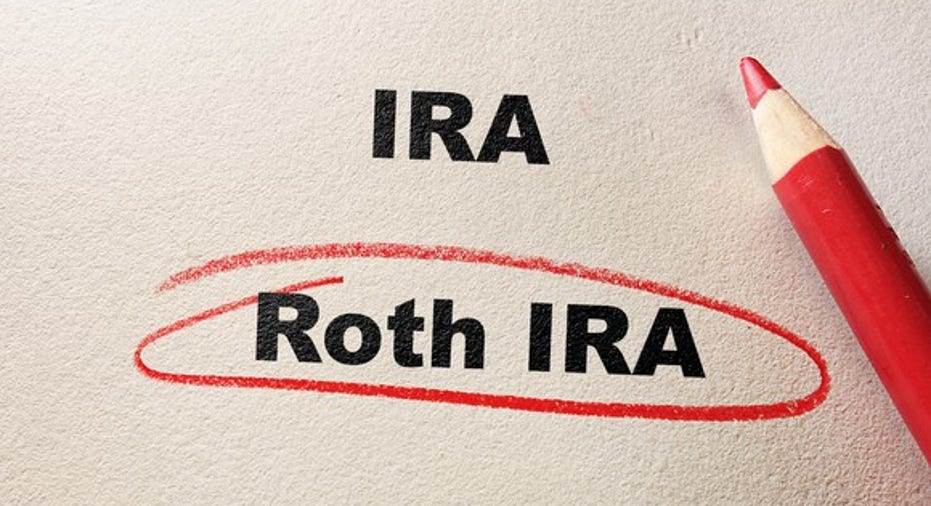3 Roth IRA Facts Every Retiree Should Know

The Roth IRA offers a huge tax break to retirement savers. Even though many people prefer the tax deductions that only traditional IRAs offer, Roth IRAs have the trade-off benefit of letting you take tax-free withdrawals once you retire. However, there are some things about Roth IRAs that many retirees don't realize, which could help them plan even more effectively. Below, we'll talk about three Roth IRA facts that should be on every retiree's mind as they plan their finances.
Image source: Getty Images.
1. You don't have to take required minimum distributions from Roth IRAs.
Perhaps the biggest advantage that Roth IRAs have over traditional IRAs is that you're never required to take distributions from a Roth IRA. One of the most complicated and onerous requirements that traditional IRAs have is that you have to start taking required minimum distributions once you turn 70 1/2. If you don't, then you'll face a draconian 50% tax penalty, which is one of the largest financial hits that the tax laws impose on individual taxpayers. RMDs are based on your age and life expectancy, with the idea that lawmakers wanted IRAs to allow tax deferral for only a limited time after reaching retirement.
The same rationale would seem to apply to the policy behind Roth IRAs as well. However, there is no RMD requirement for Roth IRAs. Therefore, you can continue to let your investment assets build tax-free as long as you like, without having to worry about penalties or other restrictions. Through smart planning, you can therefore maximize the value of your Roth and tap it strategically throughout your retirement.
2. The beneficiaries of your Roth IRA can get tax benefits throughout their lifetimes as well.
Following up on the first point, Roth IRAs make great estate planning tools. Because you don't have to take RMDs, you can preserve the tax-free treatment of your Roth IRA assets throughout your lifetime. Moreover, if you name loved ones as individual beneficiaries of your Roth IRA, they can get those benefits as well.
A surviving spouse beneficiary always has the right to take inherited Roth IRA assets and roll them over into the spouse's own Roth IRA. Non-spouse beneficiaries don't have that amount of flexibility, but they can elect to take withdrawals from their inherited Roth IRA that can stretch throughout their expected lifespans. Using rules similar to those for retiree required minimum distributions from traditional IRAs, those who inherit Roth IRAs have to take out a certain amount of the assets inside the Roth each year. However, the ability to stretch those distributions out across an entire lifetime dramatically increases the total tax benefit from using a Roth.
3. Roth IRA withdrawals can help you avoid having your Social Security taxed.
Many retirees are surprised to find that Social Security benefits can be subject to tax. Specifically, the IRS looks at your outside income and then adds in half of what you get from Social Security. If that amount is above certain thresholds -- $25,000 for single filers and $32,000 for joint filers -- then you can owe income tax on a portion of your benefits.
For purposes of determining outside income, amounts withdrawn from traditional IRAs and 401(k) plans are included in the total. Because many of those who planned well for retirement get a substantial portion of their income during their retired years from their savings, relying solely on traditional IRA and 401(k) withdrawals can push your outside income into the zone in which you'll lose some of your Social Security to taxation. However, Roth IRA distributions are not added to your outside income for purposes of the threshold. By monitoring how much you take from traditional retirement accounts and how much you use Roth IRAs, you can find a balance that will reduce or eliminate any income tax on your Social Security.
Roth IRAs have tax advantages that you'll find nowhere else. Even after you've retired, knowing the ins and outs of Roth IRAs will help you take full advantage of the opportunity they give you in developing the best possible retirement financial planning strategy.
The $15,834 Social Security bonus most retirees completely overlook If you're like most Americans, you're a few years (or more) behind on your retirement savings. But a handful of little-known "Social Security secrets" could help ensure a boost in your retirement income. For example: one easy trick could pay you as much as $15,834 more... each year! Once you learn how to maximize your Social Security benefits, we think you could retire confidently with the peace of mind we're all after.Simply click here to discover how to learn more about these strategies..
Try any of our Foolish newsletter services free for 30 days. We Fools may not all hold the same opinions, but we all believe that considering a diverse range of insights makes us better investors. The Motley Fool has a disclosure policy.



















